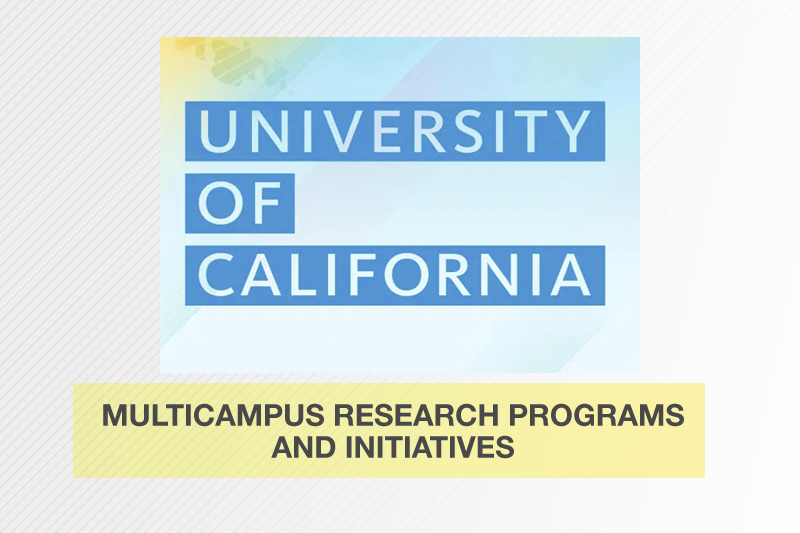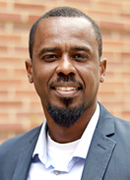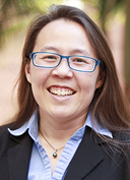UCLA Wins 2021 UC Multicampus Research Programs and Initiatives Competition

UCLA Samueli School of Engineering faculty members will lead a University of California Multicampus Research Programs and Initiatives (MRPI) project on developing more equitable disaster response and participate in another on advanced robots to address inequities in health care.
The University of California recently announced its 2021 MRPI awards for 15 multicampus proposals totaling more than $18 million over four years. Selected from a pool of 94 eligible applications, these awards represent “an investment in innovative, interdisciplinary research across a broad range of fields, engaging faculty and students across UC campuses, and supporting collaborations that strengthen UC’s research enterprise and benefit UC and the people of California.”
 UCLA is host to two of the 15 MRPI projects, with civil and environmental engineering professor Henry Burton being the lead principal investigator on California Informatics for Equitable Disaster Response and Recovery.
UCLA is host to two of the 15 MRPI projects, with civil and environmental engineering professor Henry Burton being the lead principal investigator on California Informatics for Equitable Disaster Response and Recovery.
In the hours, days and weeks following a natural disaster, officials in California must make immediate decisions and prioritize often-limited resources for rescue and recovery. Burton, who holds the Englekirk Presidential Chair in Engineering at UCLA, will lead a project to develop more informed and equitable response to natural disasters in the state. The team, which also includes colleagues from other UC campuses, received $262,428 over two years to conduct a pilot study of impacts from recent California earthquakes and floods, creating models that incorporate real-time data from multiple sources to inform and expedite state response.
The team will also take into account economic and social disparities in different communities to prioritize the more vulnerable populations in critical disaster relief.
The models, for example, will include field and satellite imagery in estimating physical damage in addition to using existing datasets gathered by people on the ground. The additional information could enhance a community’s disaster resilience, enabling more timely and accurate allocation of resources. The team will also take into account economic and social disparities in different communities to prioritize the more vulnerable populations in critical disaster relief. Findings from this research could apply to other types of disaster response.
“This project will catalyze the type of meaningful engagement across disciplines that is needed to address the inequities that are prevalent in disaster impacts,” Burton said.
Other team members include Shawn Newsam, a UC Merced computer scientist who specializes in image processing, computer vision and pattern recognition; Maura Allaire, a UC Irvine assistant professor of urban planning and public policy whose research analyzes the socio-economic impacts of disasters that are often overlooked in conventional assessment; and Ahmed Eldawy, a UC Riverside assistant professor of computer science and engineering who researches big data management and spatial data processing.
 UCLA Samueli mechanical and aerospace engineering professor Veronica Santos is co-principal investigator on the selected MRPI project — Robot-facilitated Health Equity in Post-Pandemic California and Beyond. She will collaborate with colleagues from other UC campuses to develop a new generation of telemanipulation robots designed to protect front-line health care workers from infectious diseases while helping those isolated at home because of high infection risk to connect with their communities.
UCLA Samueli mechanical and aerospace engineering professor Veronica Santos is co-principal investigator on the selected MRPI project — Robot-facilitated Health Equity in Post-Pandemic California and Beyond. She will collaborate with colleagues from other UC campuses to develop a new generation of telemanipulation robots designed to protect front-line health care workers from infectious diseases while helping those isolated at home because of high infection risk to connect with their communities.
“Our interdisciplinary team is excited to develop new robotics capabilities to directly address inequities in health care and community engagement that have been exacerbated by COVID-19,” said Santos, who is director of the Biomechatronics Laboratory at UCLA Samueli and the school’s associate dean for equity, diversity, inclusion and faculty affairs.
The researchers will design easy-to-use, low-cost, mobile robots to help grasp objects, open doors and perform other tasks to facilitate telehealth remote exams.
Funded by a $1.2 million grant over four years, the team is led by UC San Diego’s Laurel Riek, an associate professor of computer science and engineering. The researchers will design easy-to-use, low-cost, mobile robots to help grasp objects, open doors and perform other tasks to facilitate telehealth remote exams. Santos will bring expertise in artificial tactile sensing and perception, as well as grasp and manipulation with human, prosthetic and robotic hands to lead development of new haptics technologies to support teleoperators so they can truly feel immersed in the patient’s remote location, affording them a sense of presence and touch.
Millions of people at high risk of infection, including the elderly and those with cancer and suppressed immune systems have been further isolated due to COVID-19, leading to depression, suicide, dementia, heart disease and other adverse conditions.
In addition to advancing state-of-the-art mobile telemanipulation, tactile sensing, and haptics technology, the researchers will also study the best ways to deploy this technology. They will work closely with health care workers across the UC system, including emergency medicine specialists and hospitalists, to integrate the robots into critical care settings. The team will also explore how these robots can improve quality of life for isolated groups and increase their independence.
Team members of the research also include project co-principal investigator Veronica Ahumada-Newhart, a UC Irvine research scientist; Tania Morimoto, a UC San Diego assistant professor of mechanical and aerospace engineering; Jacquelynne Eccles, a Distinguished Professor of Education at UC Irvine; and Kristen Wells, an associate professor of psychology at San Diego State University.
